Jump To Section
Acne is a common skin condition that affects millions of people worldwide, regardless of age. However, there are many myths and misconceptions surrounding acne that can lead to confusion and frustration for those dealing with it. In this blog, we’ll explore eight prevalent acne myths, break down the truths behind them, and provide you with accurate information that will help you better understand acne and its causes.
Only Teenagers Get Acne, Adults Don’t
The Myth:
It’s a common belief that acne is something teenagers grow out of once they hit adulthood. Many people assume that adults who continue to experience acne are the exception rather than the rule.
The Truth:
Acne is not limited to teenagers. In fact, adult acne is a growing concern. Hormonal changes, stress, genetics, and lifestyle factors can all contribute to acne well into adulthood. Many women, in particular, experience acne during periods of hormonal fluctuation such as menstruation, pregnancy, and menopause. According to studies, nearly 40-55% of adults between the ages of 20 and 40 experience some form of acne. So, it’s perfectly normal for adults to deal with acne at various stages of life.
Click here to learn more about teenage acne.
Click here to learn more about adult acne.

Pregnancy Always Gives “Glowing” Skin
The Myth:
Pregnancy is often portrayed as a time when women experience “glowing” skin, with the assumption that acne is unlikely during pregnancy.
The Truth:
While some women do experience clearer skin during pregnancy due to hormonal changes, many others face the opposite effect. Pregnancy often brings about fluctuations in hormone levels, particularly progesterone, which can increase oil production in the skin. This excess oil can clog pores, leading to acne breakouts, especially in the first and second trimesters. It’s a common misconception that pregnancy always results in clear skin, and in reality, many expectant mothers experience acne, especially around the chin and jawline.
Click here to read more about hormonal acne and how to manage it.

Acne Scars Go Away on Their Own
The Myth:
A widespread belief is that acne scars will fade with time without any intervention.
The Truth:
While some acne scars and areas of hyperpigmentation may naturally fade over time, they often don’t completely disappear without treatment. Acne scars can be classified into different types, including hyperpigmentation (dark spots) and textural scars (pitted or raised scars). These scars may require professional treatments like skin peels or microneedling to improve their appearance. It’s important to understand that acne scars need targeted care and attention to be effectively treated.
Click here to learn more about the different types of acne scars and how to treat them.
Click here to learn more about our Acne Scars Treatment Package at Freyja Medical.
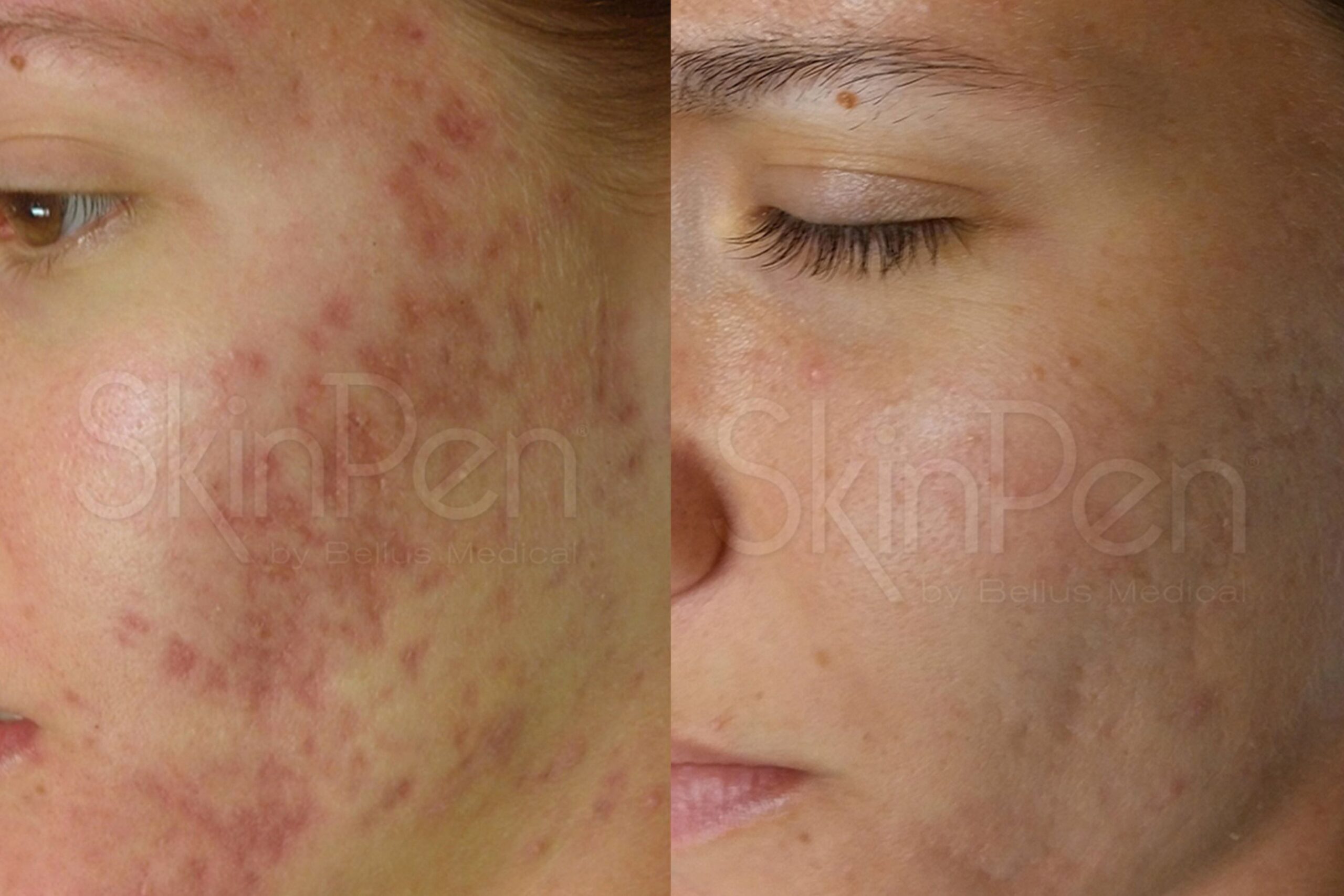
Popping Pimples Makes Them Go Away Faster
The Myth:
Many people believe that popping pimples helps them heal faster, thinking it will clear up the acne quicker.
The Truth:
Popping pimples can actually make things worse. While it might seem tempting, popping acne lesions can push bacteria deeper into the skin, cause further inflammation, and increase the risk of scarring. Additionally, squeezing pimples can introduce more bacteria from your fingers, leading to more breakouts. The best approach is to leave the pimple alone and allow it to heal naturally.
If you’re struggling with stubborn acne, professional treatments can make a big difference. Advanced options such as HydraFacial, skin peels, and LED light therapy can help to reduce inflammation, clear blocked pores, and improve skin health effectively and safely.
Click here to learn more about our acne treatment packages.
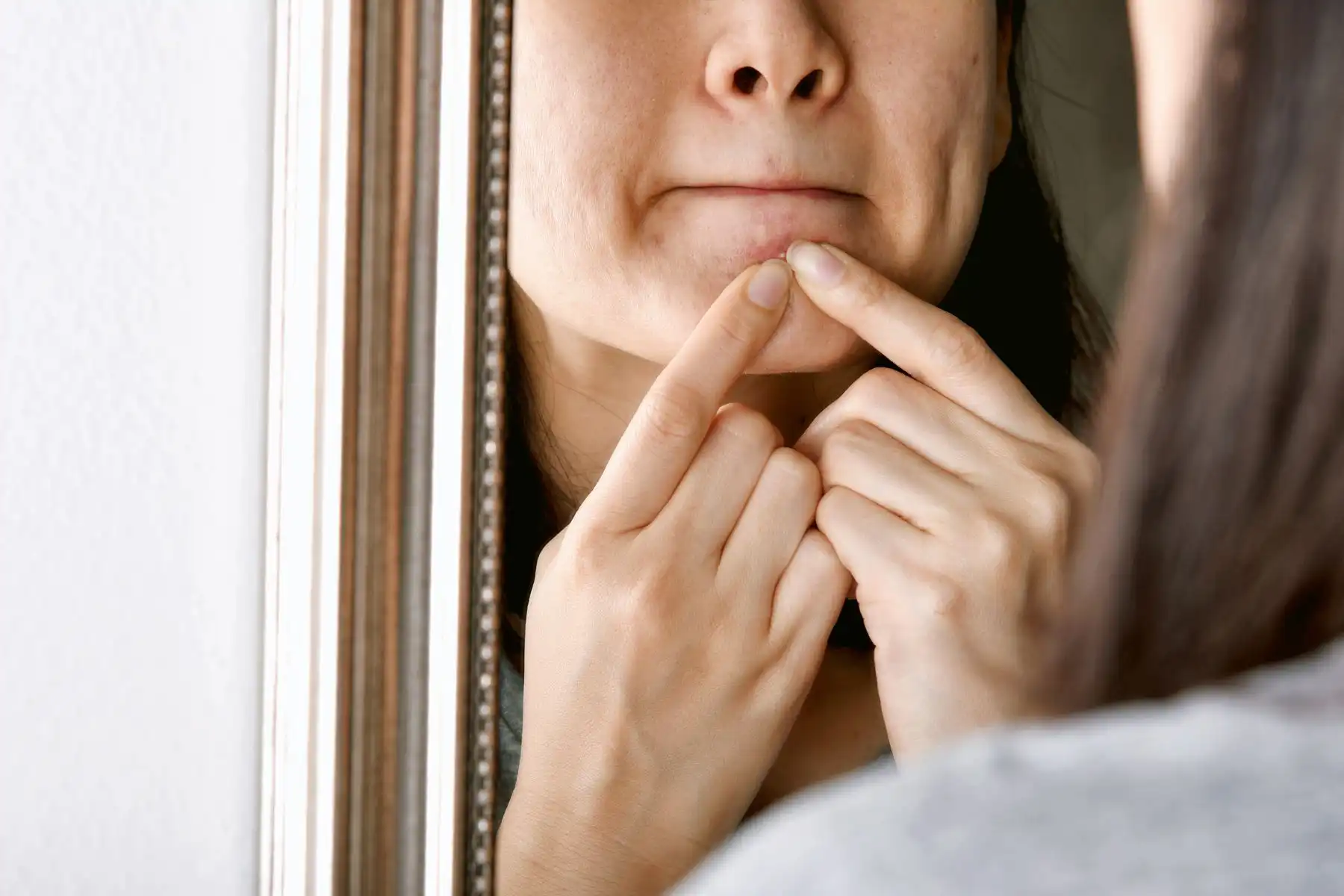
More Washing Means Clearer Skin
The Myth:
Some believe that washing their face multiple times a day will help get rid of acne faster by removing excess oil and dirt.
The Truth:
While proper hygiene is important for maintaining healthy skin, over-washing can actually do more harm than good. Washing your face too often or using harsh cleansers can strip the skin of its natural oils, leading to dryness and irritation. This can trigger the skin to produce even more oil in response, which may worsen acne. It’s best to cleanse your face twice a day with a gentle, non-comedogenic cleanser. Over-washing can also cause unnecessary irritation and inflammation, which may make acne worse.
Click here to learn about the best skincare routine for acne-prone skin.
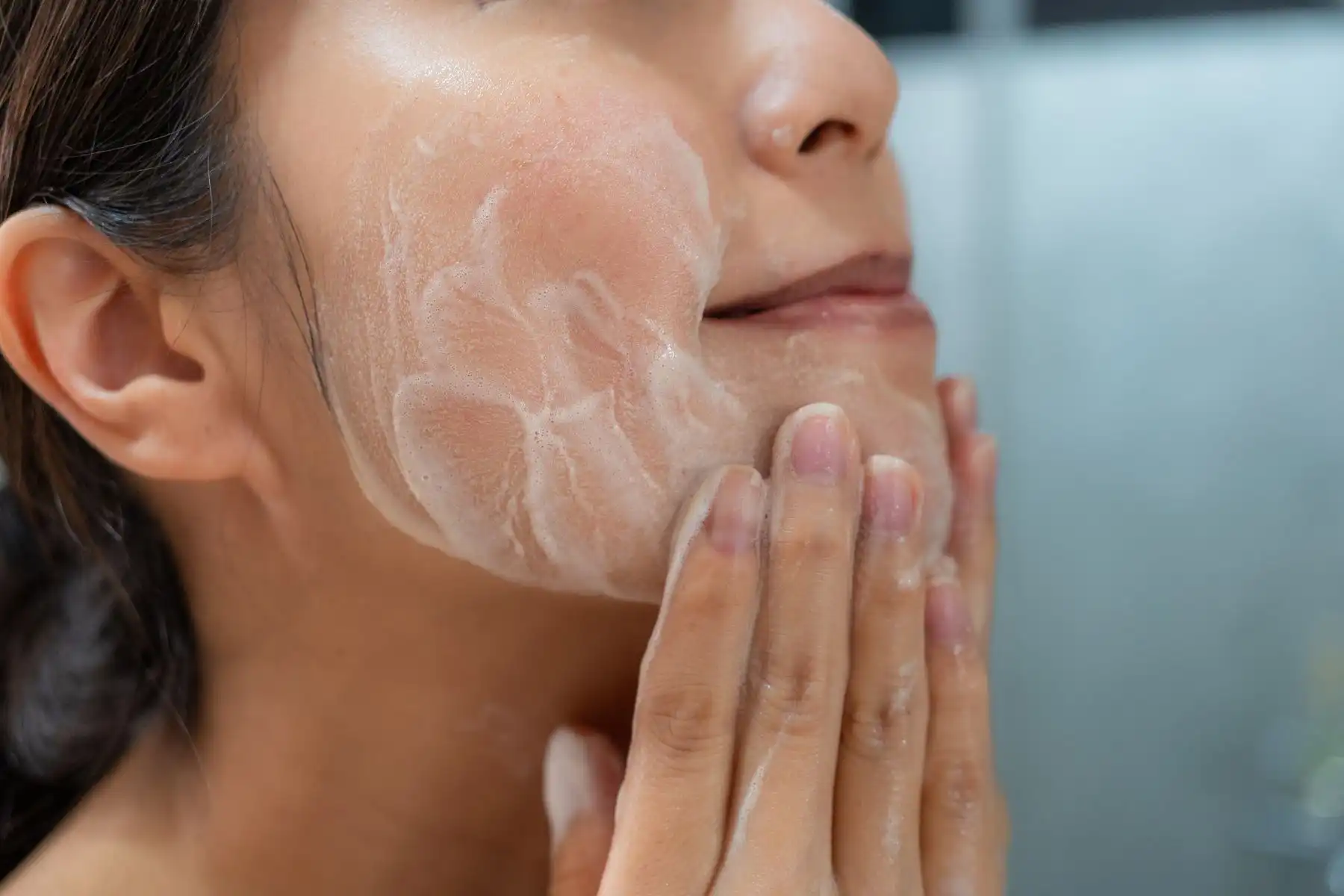
Makeup Causes Acne
The Myth:
A common myth is that makeup automatically causes acne, particularly foundation, which is thought to clog pores and exacerbate skin problems.
The Truth:
Makeup itself doesn’t necessarily cause acne, but certain types of makeup products can contribute to breakouts, especially if they are comedogenic (pore-clogging). Non-comedogenic makeup, which is formulated to not block pores, is a good option for those with acne-prone skin. Additionally, if makeup is not removed properly at the end of the day, it can trap dirt, oil, and bacteria in the pores, which can lead to blackheads and breakouts. Make sure to choose makeup products that are suitable for acne-prone skin and always remove makeup thoroughly before bed.
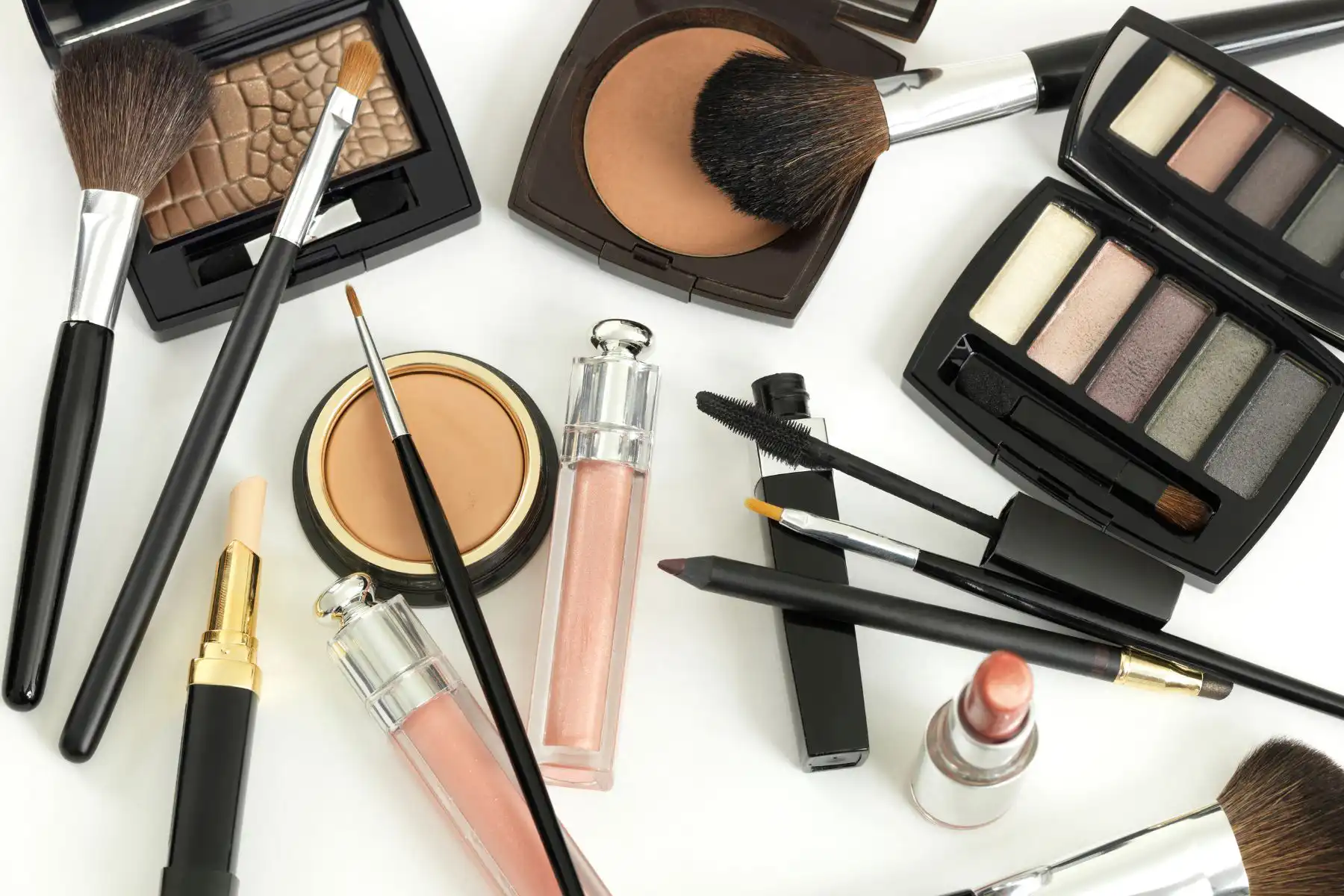
Acne Is Caused by a Poor Diet
The Myth:
Many people believe that eating greasy foods, chocolate, or junk food directly causes acne.
The Truth:
While diet can influence skin health, acne is not directly caused by eating greasy or unhealthy foods. However, some studies suggest that a high-glycemic diet (foods that spike blood sugar) and dairy may contribute to acne flare-ups in some individuals. Foods such as refined sugars, white bread, and milk can increase insulin levels and stimulate oil production, potentially triggering acne. Maintaining a balanced diet with plenty of fruits, vegetables, and whole grains can help support overall skin health. But it’s important to remember that diet alone is not the primary cause of acne.

Acne Is Only Caused by Poor Hygiene
The Myth:
It’s a common misconception that poor hygiene or lack of cleansing is the main cause of acne. This belief often leads people to assume that if they just wash their face more, they can get rid of acne.
The Truth:
While cleanliness is important, acne is not solely caused by poor hygiene. Acne occurs when pores become clogged with excess oil, dead skin cells, and bacteria. Hormones, genetics, stress, and inflammation are significant factors in the development of acne, and none of these are related to hygiene alone. In fact, over-washing or using harsh products can irritate the skin and trigger more breakouts. Consistent, gentle skincare practices are key to managing acne effectively. Click here to learn more about what ingredients matter most for acne products.
However, for more persistent or severe acne, over-the-counter solutions may not be enough. In these cases, dermatology-led treatments are often required to properly target the root causes. Prescription-strength options can offer better results, particularly when tailored to your skin by an expert. Click here to read our blog on over-the-counter vs. prescription acne products.
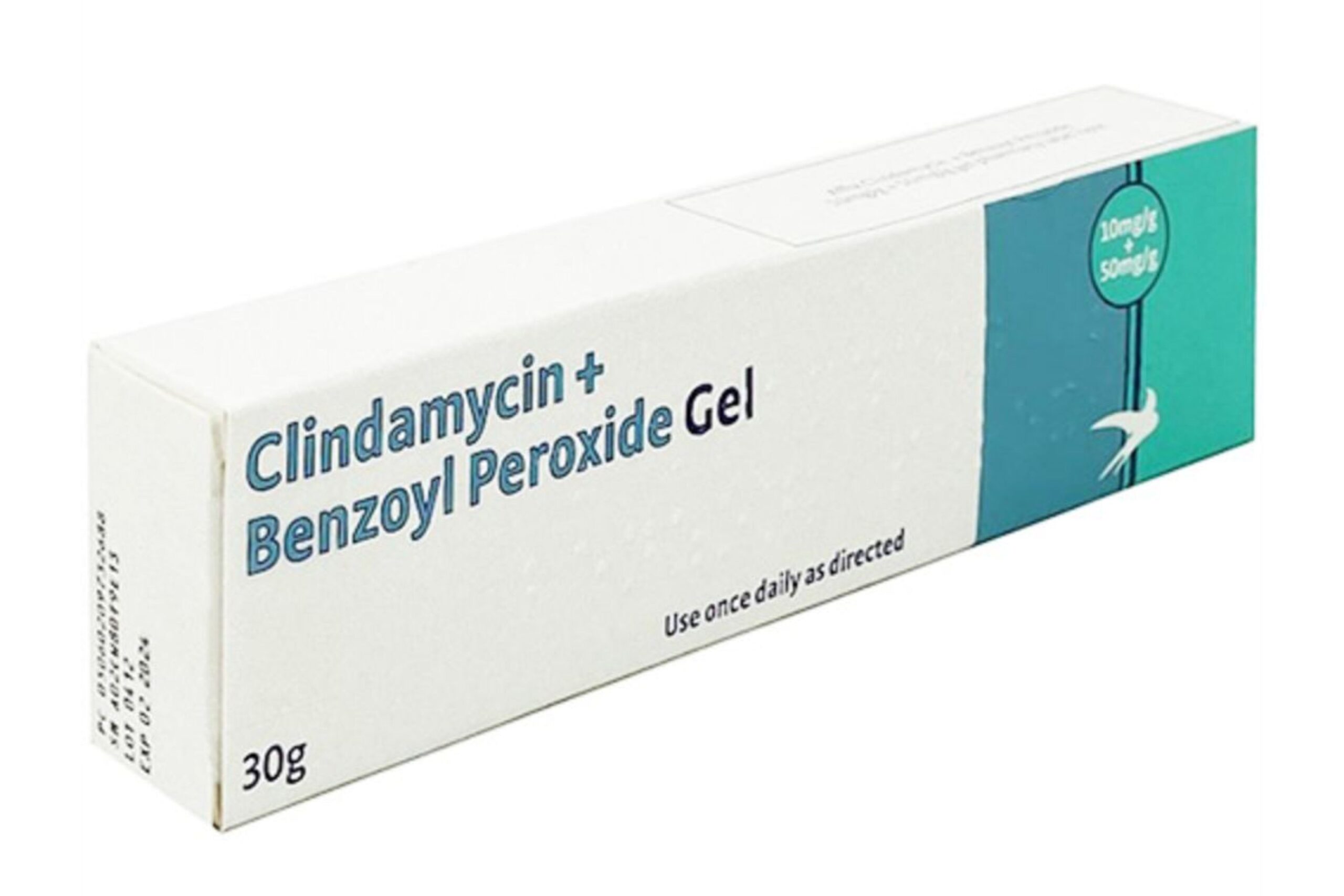
Over-Exfoliating Helps Clear Acne
The Myth:
Many believe that scrubbing the skin and using strong exfoliators regularly will help clear acne faster by removing oil, dirt, and dead skin cells.
The Truth:
While gentle exfoliation can be beneficial for acne-prone skin, over-exfoliating can actually make acne worse. Harsh scrubbing or frequent use of strong exfoliants damages the skin barrier, causing irritation, redness, and even more breakouts. It can also lead to increased oil production as the skin tries to repair itself, clogging pores further and worsening blackheads and spots.
The key is to use a mild, non-abrasive exfoliant no more than a few times a week, ideally as part of a skincare routine recommended by a professional. Overdoing it will not clear acne — it will just make your skin more vulnerable and inflamed.

Conclusion
There are many myths surrounding acne, and it’s important to separate fact from fiction. Acne can affect anyone, regardless of age, and its causes go far beyond just poor hygiene or diet. By understanding the truths behind these common misconceptions, you can approach acne management more effectively and make informed decisions about your skincare routine and treatment options.
How to Book a Consultation
With so many myths and misconceptions surrounding acne, it’s easy to feel overwhelmed or confused about the right way to manage it. At Freyja Medical, we help you cut through the noise with expert advice and treatments tailored to your individual needs.
- For mild to moderate acne: A skincare consultation can help you build a personalised routine using the right products for your skin, avoiding common mistakes that could make acne worse.
- For severe or persistent acne: A dermatology consultation is recommended, offering a bespoke treatment plan that targets the underlying causes effectively.
By understanding the truths about acne and working with experts, you can achieve clearer, healthier skin without falling for harmful myths.
You can book your consultation online by clicking here or by contacting us directly:
☎️ 01978 799688



